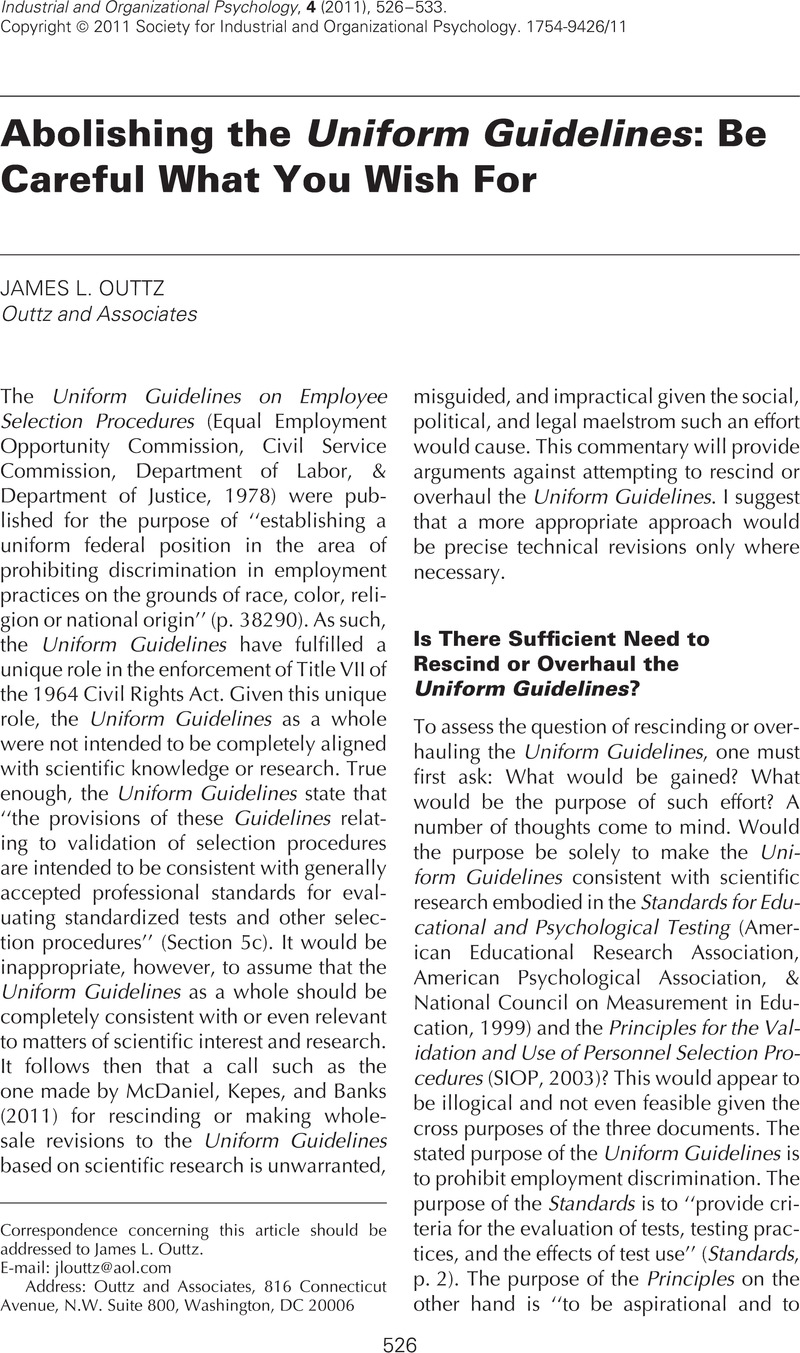Crossref Citations
This article has been cited by the following publications. This list is generated based on data provided by Crossref.
McDaniel, Michael A.
Kepes, Sven
and
Banks, George C.
2011.
Encouraging Debate on the Uniform Guidelines and the Disparate Impact Theory of Discrimination.
Industrial and Organizational Psychology,
Vol. 4,
Issue. 4,
p.
566.
Camilli, Gregory
2013.
Ongoing issues in test fairness.
Educational Research and Evaluation,
Vol. 19,
Issue. 2-3,
p.
104.



